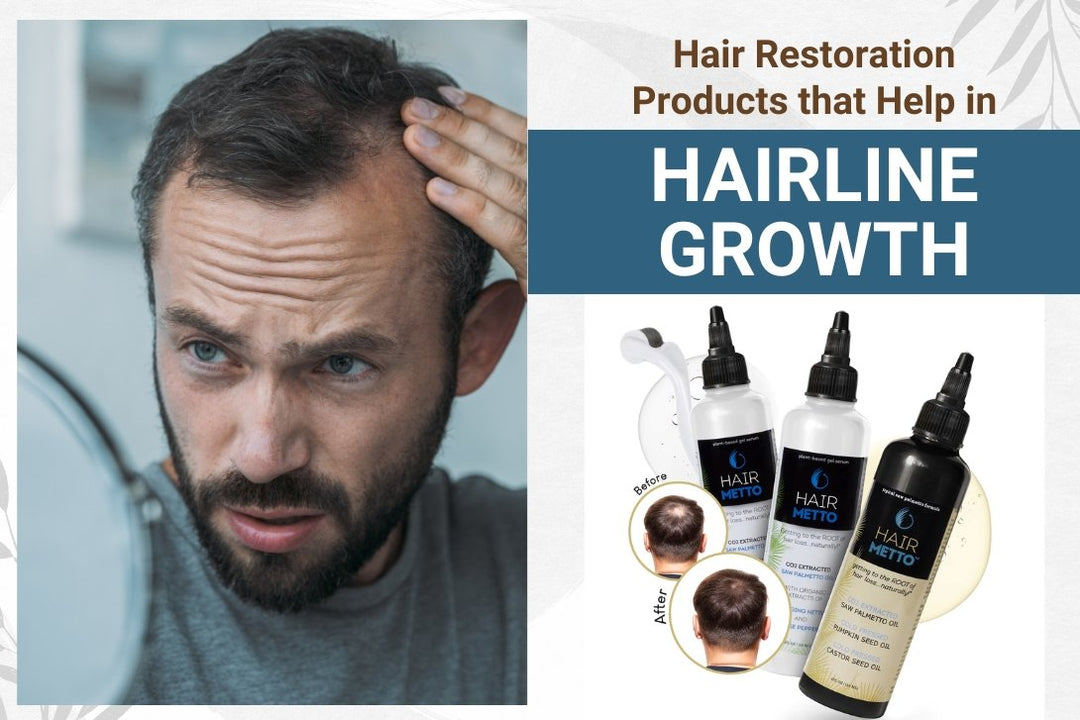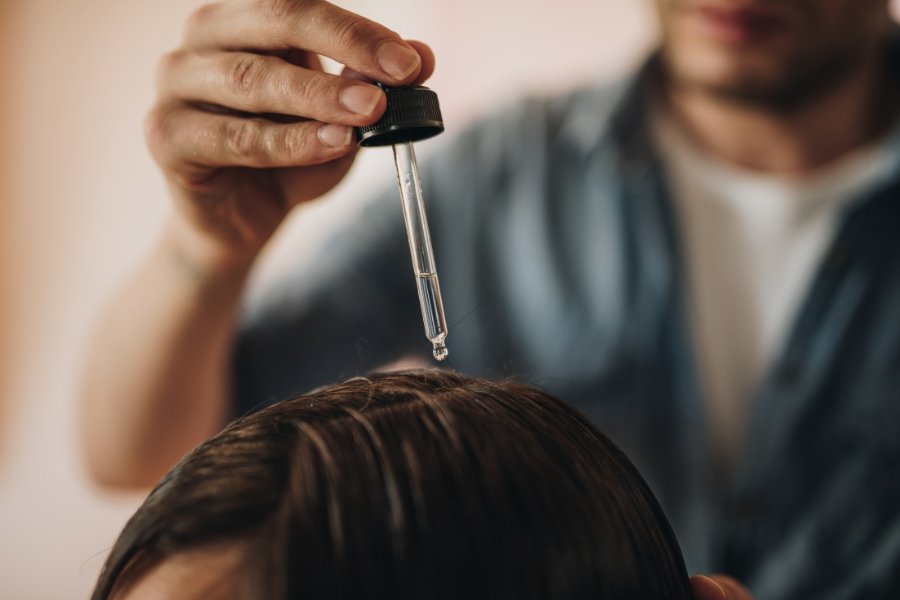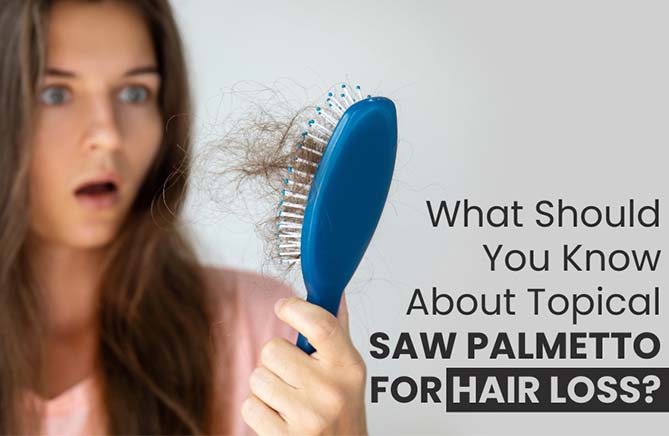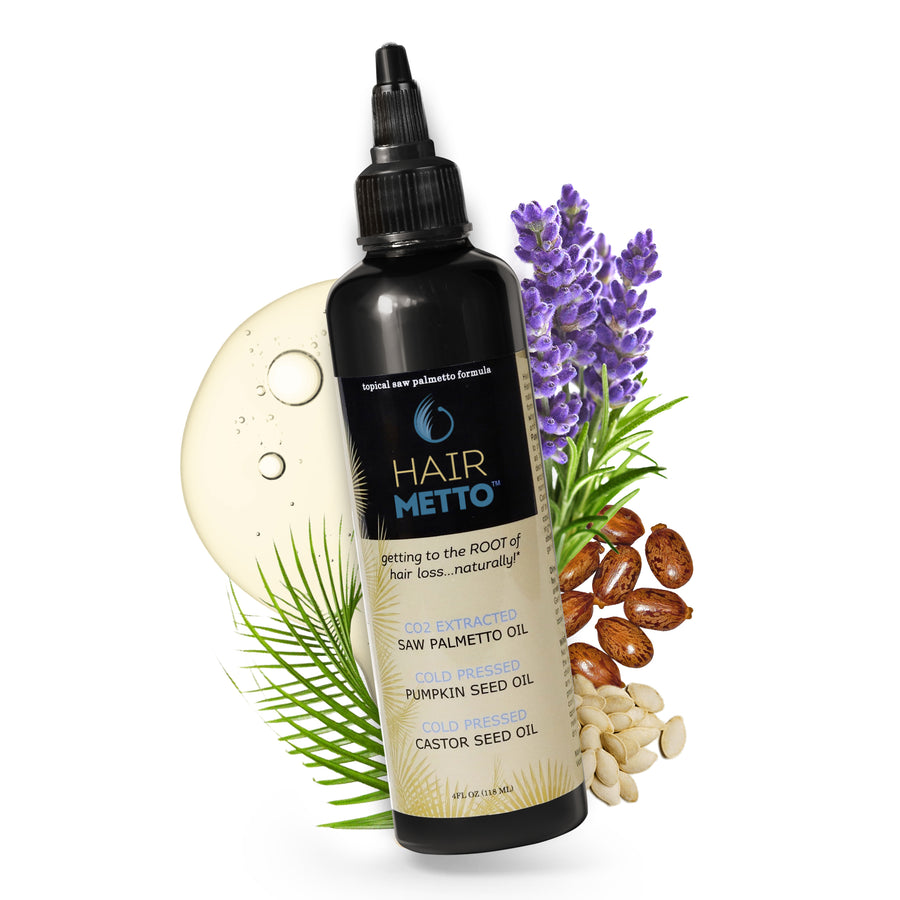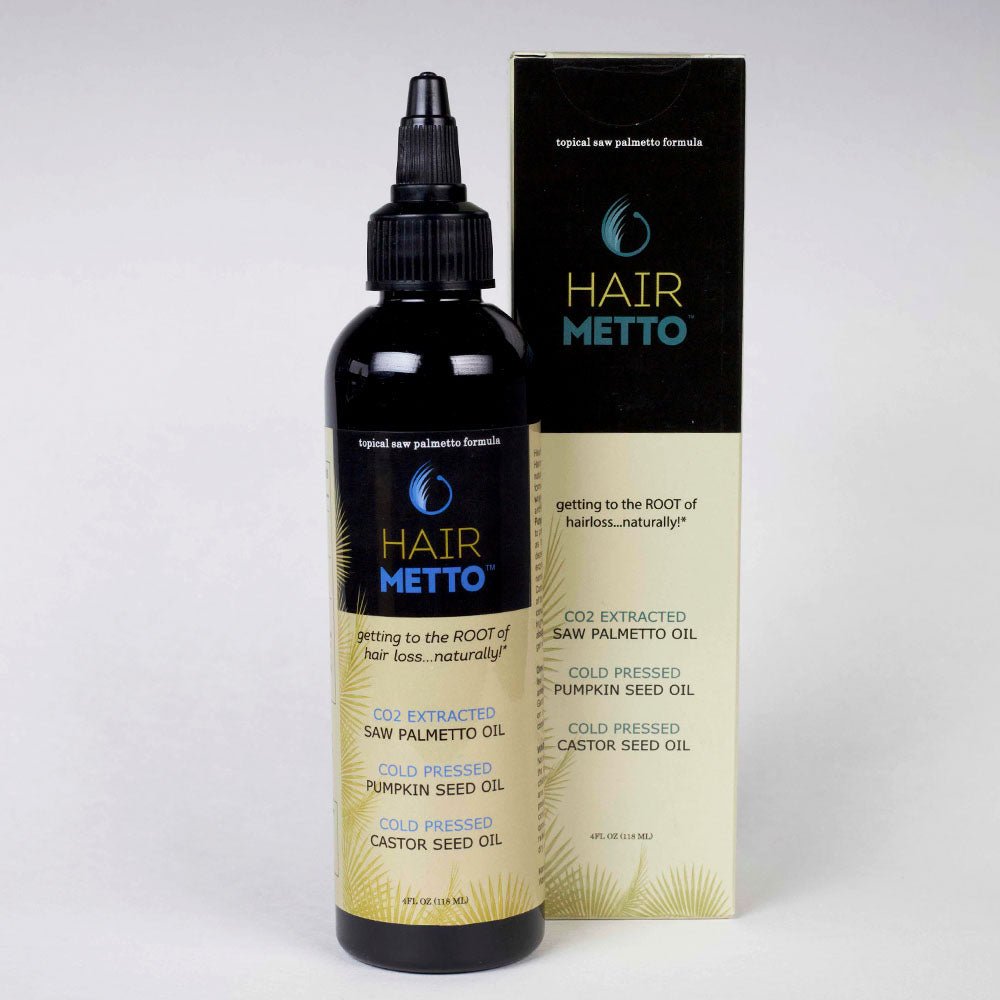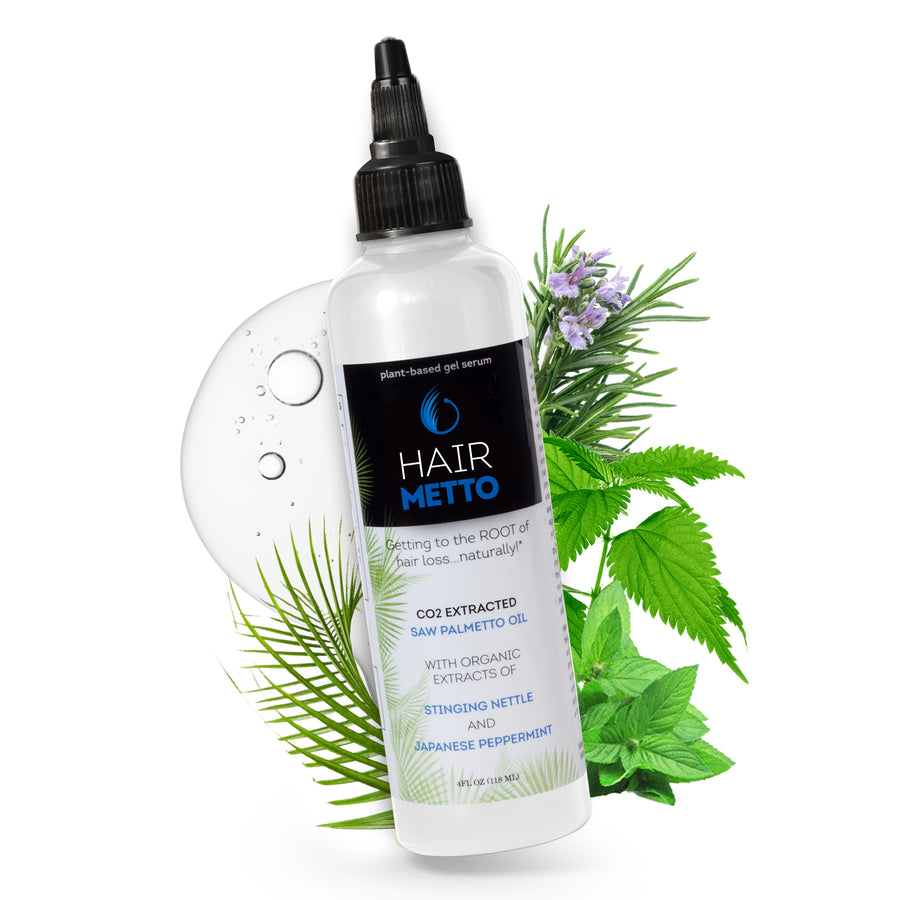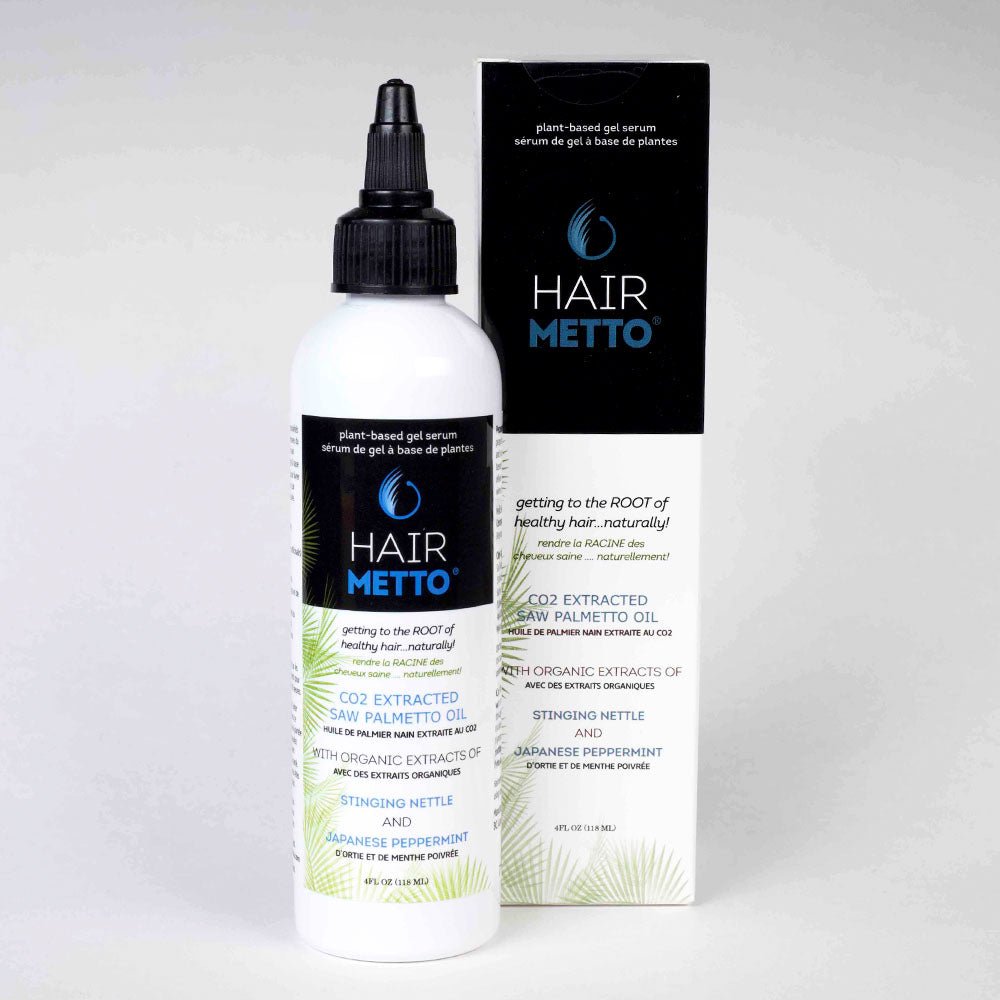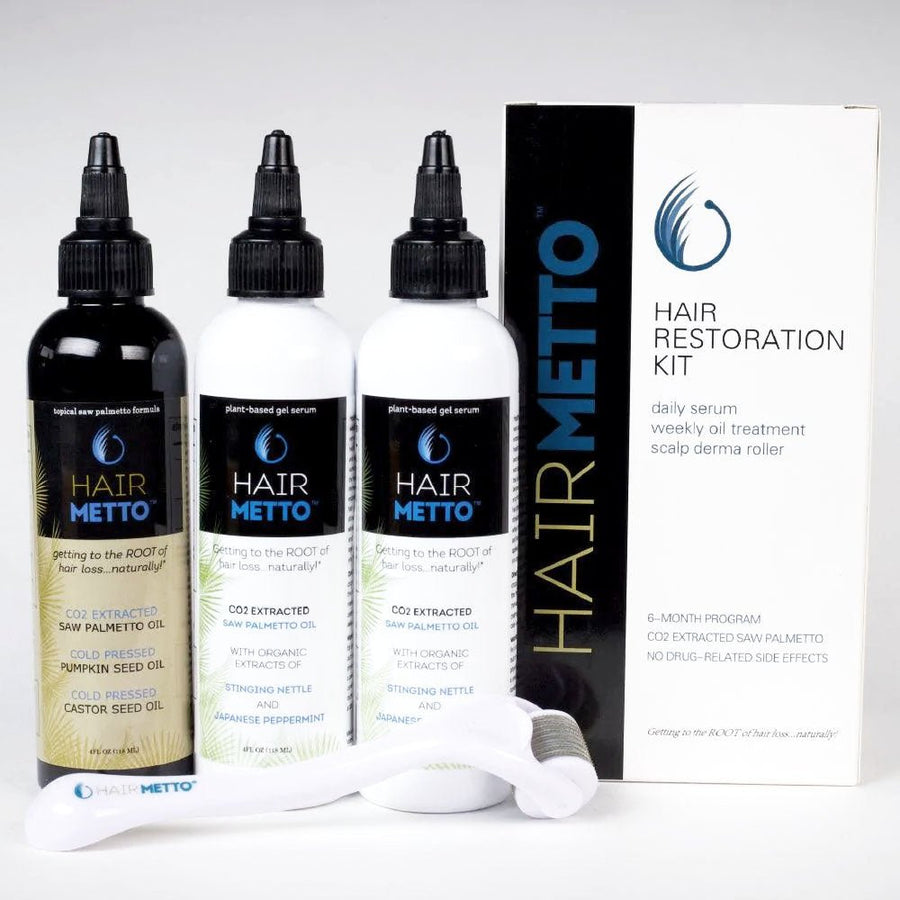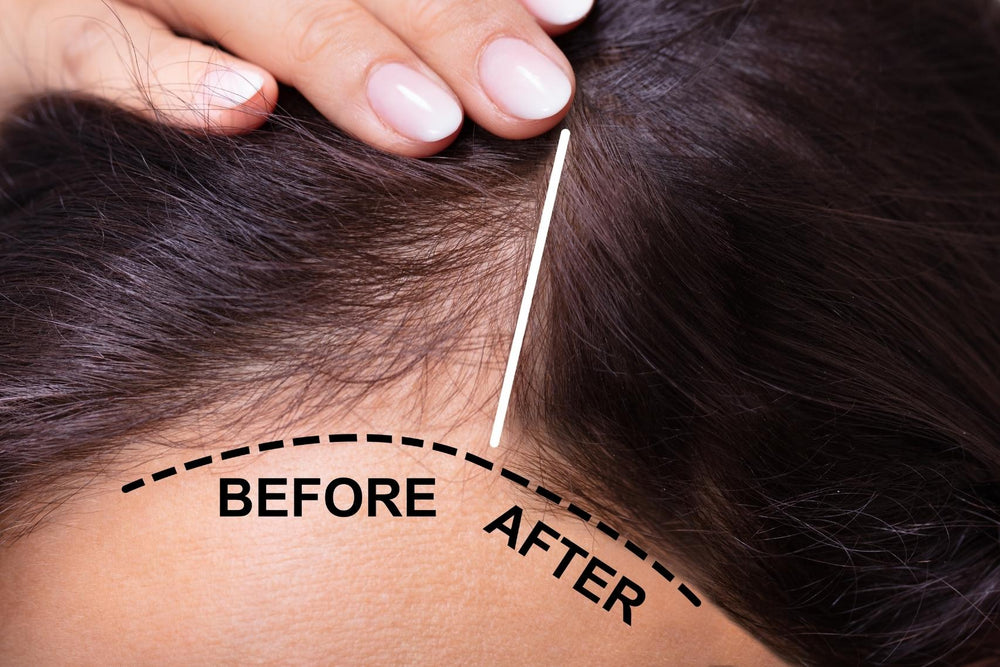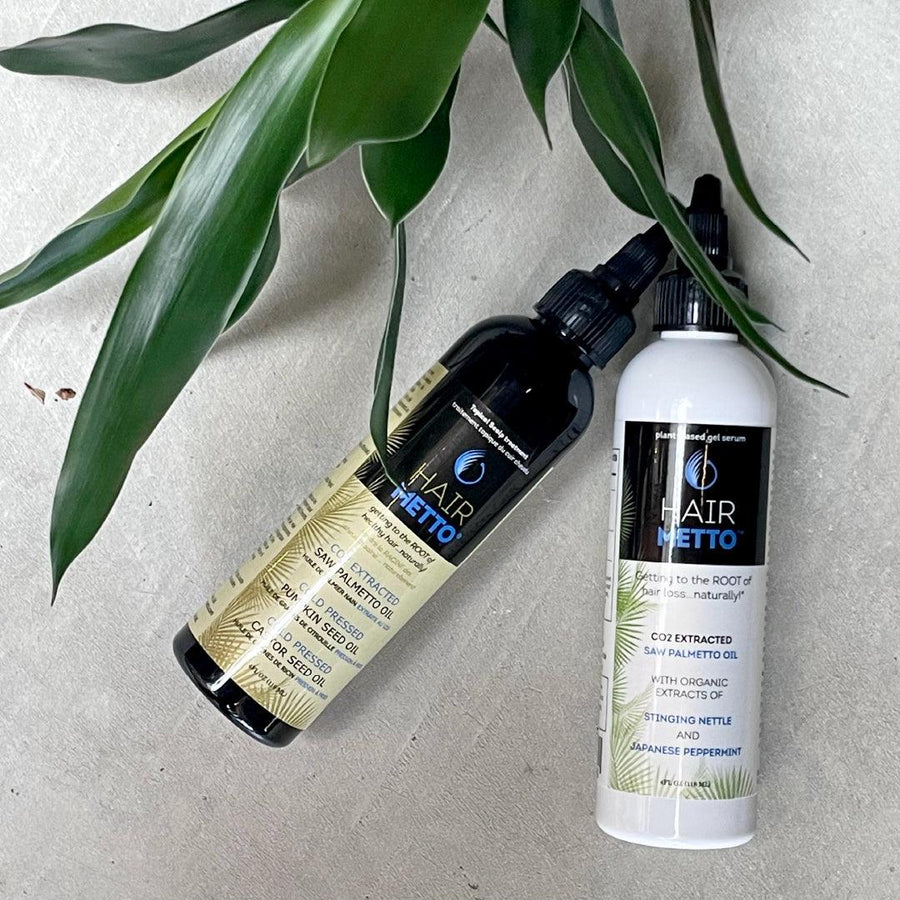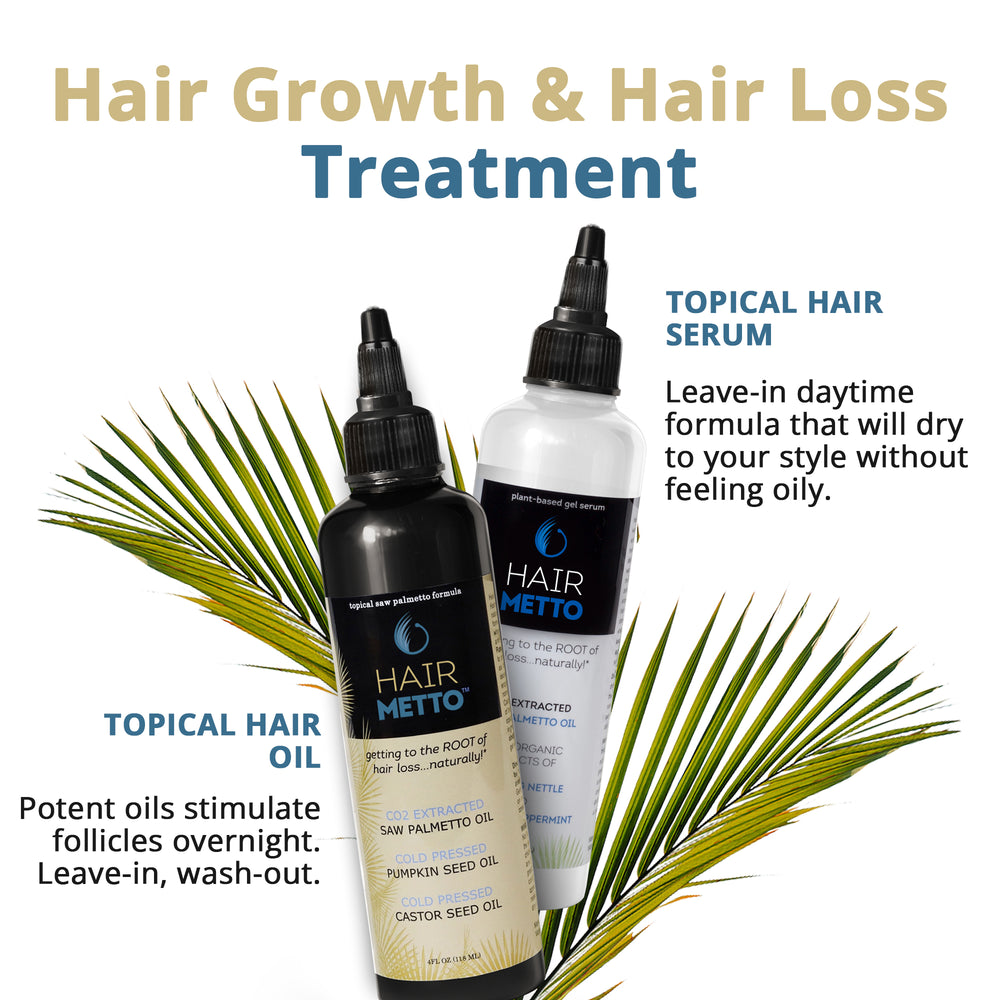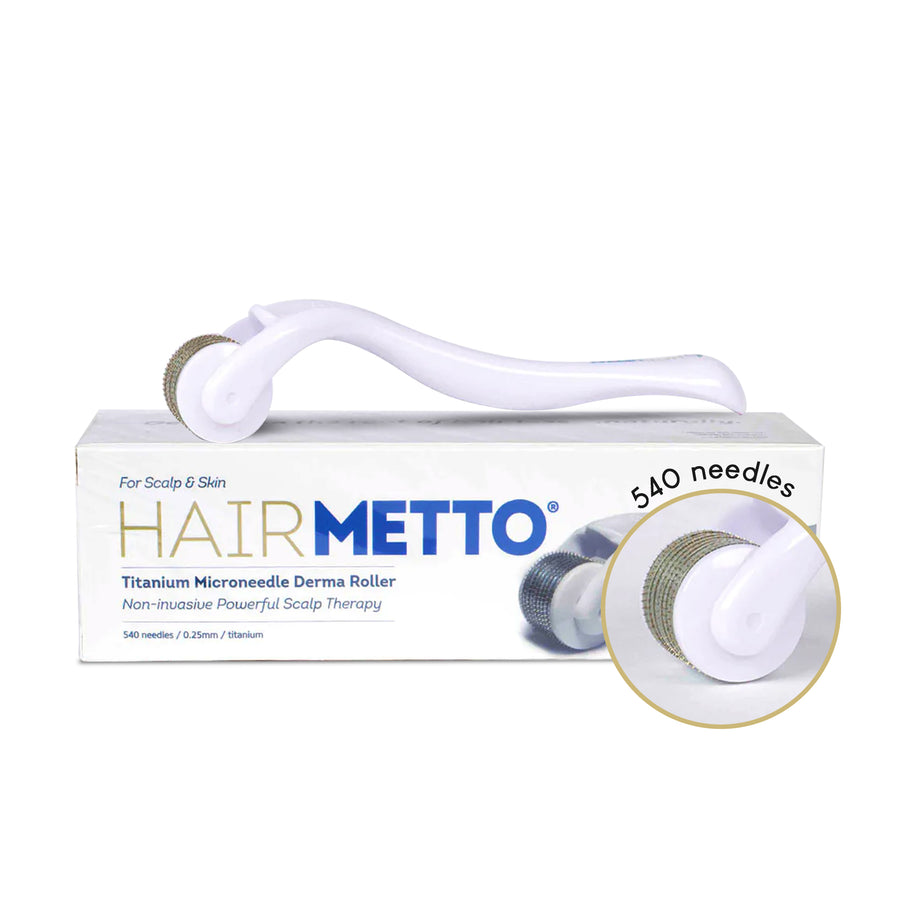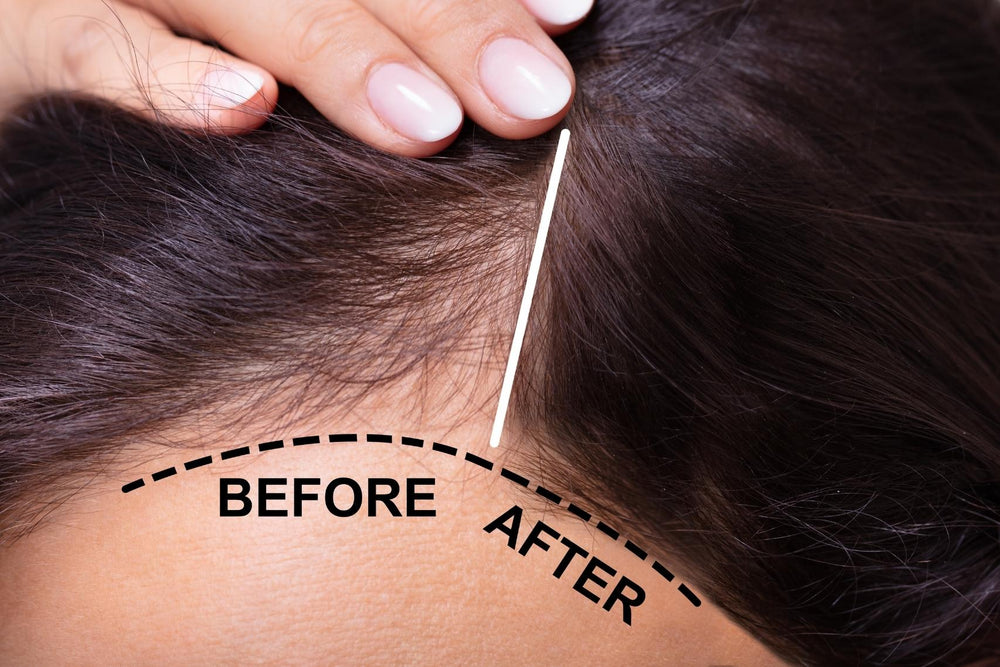Scalp Inflammation: Causes, Impact and Natural Remedies
Dealing with scalp inflammation can be an uncomfortable and distressing experience. The redness, itching, and irritation can affect our scalp's health, confidence, and well-being. You're not alone if you've been grappling with scalp inflammation and its detrimental effects on your hair health. This blog will dive into scalp inflammation and its far-reaching consequences.
We will explore the various causes of scalp inflammation, understand its impact on hair health, and uncover natural remedies such as topical Ecklonia cava, Stinging Nettle root extract, and Saw Palmetto extract that may help soothe and reduce scalp inflammation.
We aim to empower you with valuable knowledge and solutions to restore a healthy scalp and promote vibrant hair growth. Let's start this journey to understanding and overcoming scalp inflammation together.
What is Scalp Inflammation?
Scalp inflammation refers to redness, irritation, and swelling of the scalp. It can cause discomfort, itching, and tenderness. Inflammation disrupts the normal functioning of the scalp and can negatively impact hair follicles, leading to hair loss or impaired hair growth.
8 Causes of Scalp Inflammation
It's often difficult to know what comes first: the scalp condition or the scalp inflammation.
If you have an underlying scalp condition, inflammation of the scalp is at the root. However, if you have scalp inflammation, it can often result in a scalp condition. Let's first look at certain factors that can cause an inflammatory response in the scalp.
- Seborrheic dermatitis: a common scalp condition with greasy, flaky patches.
- Scalp psoriasis: an auto-immune condition that involves the rapid growth of skin cells, leading to thick, scaly patches.
- Scalp folliculitis: inflammation of the hair follicles caused by bacterial or fungal infections resulting in painful, pus-filled bumps on the scalp. These conditions often involve an immune system response and can result in ongoing inflammation in the scalp.
- Allergic Reactions: Certain hair care products can contain allergens that trigger an immune response, leading to scalp inflammation. Common allergens include fragrances, preservatives and certain chemicals.
- Mechanical Trauma: Excessive brushing, frequent heat styling, and tight hairstyles like braids or ponytails can cause physical trauma to the scalp, resulting in inflammation.
- Hormonal Imbalances: Fluctuations in androgen hormones like testosterone and DHT can contribute to scalp inflammation and hair loss, especially in conditions like androgenetic alopecia. Both men and women experience these fluctuations in hormonal balance.
- Stress and Emotional Factors: Stress, anxiety and emotional factors can impact immune function and increase inflammation, potentially affecting the scalp.
- Environmental Factors: Exposure to air pollution, chemical irritants, and environmental allergens can lead to scalp inflammation.
The first 3 causes above are also the conditions caused by scalp inflammation. For example, let's look at a common scalp condition: Psoriasis.
Inflammation: A Primary Feature of Psoriasis
Psoriasis is a chronic autoimmune condition characterized by abnormal skin cell growth, resulting in thick, scaly patches on the skin. In the case of scalp psoriasis, these patches can occur on the scalp, leading to redness, itching, and inflammation.
In most cases, inflammation is the primary feature of psoriasis. The underlying immune response triggers the development of the characteristic skin lesions and associated symptoms. The inflammation in psoriasis occurs due to an overactive immune system mistakenly attacking healthy skin cells, causing them to multiply rapidly.
Therefore, inflammation typically precedes the manifestation of psoriatic symptoms. The immune system response and subsequent inflammation trigger the formation of psoriatic plaques, which can be seen on the scalp or other parts of the body.
However, it's important to note that psoriasis is a complex condition, and the exact causes and mechanisms are not fully understood. There can be variations in the onset and progression of psoriasis from person to person. While inflammation is a key aspect of psoriasis, psoriasis lesions can sometimes be present without significant inflammation.
If you suspect you have scalp psoriasis or are experiencing symptoms of scalp inflammation, it's advisable to consult with a dermatologist or healthcare professional for an accurate diagnosis and appropriate management strategies.
How Inflammation Causes Alopecia Hair Loss
Hair Loss (Alopecia): Prolonged scalp inflammation can contribute to hair loss, especially in conditions like androgenetic alopecia.
Inflammation of the scalp can cause a condition called alopecia, characterized by hair loss. When the scalp becomes inflamed, it disrupts the normal hair growth cycle, leading to problems with hair follicles. Various factors like skin conditions or infections can cause inflammation. The inflammation damages the hair follicles and prevents them from producing healthy hair, resulting in hair loss. In some cases, the inflammation can cause permanent damage to the follicles, making it difficult for hair to grow back. It's essential to manage scalp inflammation to prevent and treat alopecia by creating a healthier environment for hair follicles to function correctly.
The Impact of Scalp Inflammation on Hair Health
Scalp inflammation can have various adverse effects on hair health, including:
- Disruption of Hair Growth Cycle: Inflammation can interfere with the normal hair growth cycle, leading to hair shedding and slower hair regrowth.
- Weakening and Miniaturization of Hair Follicles: Prolonged inflammation can weaken hair follicles, causing them to produce thinner, weaker hair strands.
- Hair Thinning and Shedding: Inflammatory conditions can result in excessive hair shedding and overall hair thinning.
- Impaired Blood Circulation to the Scalp: Inflammation can constrict blood vessels, reducing blood flow to the scalp and depriving hair follicles of essential nutrients.
- Increased Oxidative Stress on Hair Follicles: Inflammatory processes generate free radicals, damaging hair follicles and impeding healthy hair growth.
Indeed, prolonged inflammatory responses in the scalp can lead to hair loss and thinning. This inflammation can prevent healthy hair growth when the blood vessels are restricted. Understanding the effects underscores the importance of maintaining a healthy scalp because chronic inflammation can lead to various conditions.
Remedies to Reduce Scalp Inflammation
While doctors can prescribe medications to address scalp inflammation and associated conditions, it's worth exploring natural and herbal remedies that may provide valuable alternatives without drug-related side effects.
Herbal remedies have been used for centuries and are increasingly gaining recognition for their potential benefits. These remedies can offer a holistic approach to scalp health by targeting inflammation and promoting a healthier environment for hair follicles. Effective remedies should accomplish the following:
- Restore the hair growth cycle.
- Reduce inflammatory DHT at the root.
- Reduce hair thinning.
- Stimulate vital blood circulation to the root.
- Reduce oxidative stress on the scalp.
Reducing Scalp Inflammation: Nature's Topical Remedies
In the following sections, we will explore remedies such as topical Ecklonia Cava, Stinging Nettle root extract, and Saw Palmetto extract. It's important to note that consulting with a healthcare professional or dermatologist is important for personalized guidance and ensuring compatibility with your situation.
Topical Ecklonia Cava Reduces Scalp Inflammation
Ecklonia Cava, a species of brown seaweed, has shown the potential to reduce scalp inflammation. Here are some benefits of Ecklonia Cava properly extracted.
- Anti-inflammatory Effects: Ecklonia cava contains compounds that possess anti-inflammatory properties, helping to reduce scalp inflammation.
- Antioxidant Activity: The seaweed's rich antioxidant content helps neutralize free radicals, reducing oxidative stress and inflammation in the scalp.
- DHT Inhibition: Studies suggest that Ecklonia cava may inhibit the enzyme responsible for converting testosterone to DHT, thus reducing DHT-induced inflammation and hair follicle damage.
- Improved Blood Circulation: Ecklonia cava promotes blood vessel dilation, enhancing blood flow to the scalp and improving nutrient delivery to hair follicles.
- Anti-Glycation Effects: Ecklonia cava may help prevent the formation of harmful compounds that contribute to inflammation and hair follicle damage by inhibiting glycation. More about how glycation affects the scalp is here.
See HAIRMETTO® Topical Ecklonia Cava Styling Treatment here
Stinging Nettle Root Extract Calms Scalp Inflammation
Stinging Nettle extracted from the root boasts a long history in medicine. This organic, alcohol-free extract is rich in vitamins, minerals, proteins and amino acids. Best known for its anti-inflammatory properties, stinging nettle brings these benefits:
- Inhibits Inflammatory Pathways: Stinging Nettle root extract contains compounds that can help modulate inflammatory pathways, reducing scalp inflammation.
- Itch Relief: The extract has been found to alleviate itching and discomfort associated with scalp inflammation. Many have found instant soothing of a dry, itchy scalp.
- Supports Scalp Health: Stinging Nettle root extract has been traditionally used to promote a healthy scalp, which can contribute to reducing inflammation and maintaining optimal hair growth.
See HAIRMETTO® Topical Saw Palmetto with Stinging Nettle Day Serum here.
Saw Palmetto Extract Calms Scalp Inflammation
When extracted using CO2 super-critical technology, topical Saw Palmetto is highly effective in addressing scalp inflammation and hair loss. Here’s how:
- Inhibition of 5-Alpha Reductase: Saw Palmetto extract may inhibit the enzyme 5-alpha reductase, which converts testosterone to DHT. Reducing DHT levels can help alleviate inflammation and protect hair follicles from damage.
- Maintaining a Healthy Scalp Environment: Saw Palmetto extract may help balance sebum production, reducing oiliness on the scalp and creating a healthier environment for hair growth.
- Support for Hair Follicle Health: The extract's anti-inflammatory properties can help maintain the health and integrity of hair follicles, reducing scalp inflammation and promoting healthy hair growth.
See HAIRMETTO® Topical Saw Palmetto Overnight Oil here
Conclusion
Understanding scalp inflammation is crucial for maintaining optimal hair health. Identifying the causes, recognizing the impact on hair follicles, and exploring natural remedies like topical Ecklonia cava, Stinging Nettle root extract, and Saw Palmetto extract can help reduce inflammation and promote a healthy scalp environment for vibrant and strong hair. (Consulting with a healthcare professional or dermatologist is recommended for personalized advice and treatment options.)
Since 2014, HAIRMETTO® has been committed to scientific discovery for all-natural hair growth treatments and hair restoration - combatting hair loss without disrupting hormones and without drug-related side effects.
See the collection of HAIRMETTO® Hair Loss Treatments here.

